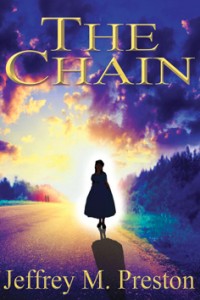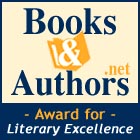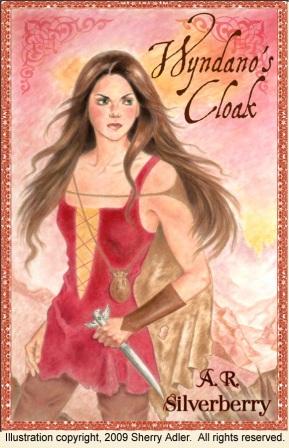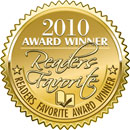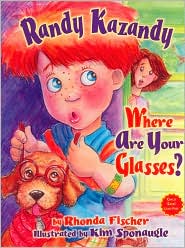I met James Ventrillo at the recent Readers Favorite Awards banquet, where he spoke on the topic of e-queries. I was so impressed with the content of his presentation, that I asked him to join me for an interview. Without further ado, on to the interview.
What is the place of e-queries in today’s publishing world?
The e-query is king! It is the essential, critical next step after finishing your book—for those who do not want to self publish, that is. If you want to go the traditional agent/publisher route, then you must alert them to the existence of your book. To do that you need to mail or e-mail them a brief description of your book; this is known as a query letter. If you email the query letter, it is an e-query.
Because agents and publishers get literally hundreds of these e-queries a day, they must be short and awesome. Think about that word…awesome. When you read your query, does it sound comprehensive, good, to the point? Well then rewrite it! When it sounds like a TV commercial for the next James Patterson book, then it’s ready.
Are e-queries now the preferred way to contact editors and agents?
Well, some still prefer mailed queries. Why? It takes more time, shows more interest in their particular company, and many people will haphazardly put their e-query together because for some reason they believe that an email can be less formal.
But overall, yes, e-queries are the preferred method. The reader can quickly go through them, which means you need to have a “hook” that grabs them fast!
What are the main elements of an e-query?
I can tell you what I think those elements are, but you will find there are many versions people will swear by. So, let the swearing begin…
The page starts with your name and contact info top left.
Next you need a short introduction line that has your title, word count (not page count), genre, and time and location (if relevant). Some people try to summarize their entire book into a “hook” on this line; I advise against it. An agent will read this first line and decide if these basic facts make it a book they would be interested in. Most of the time, the answer will be no. If you are lucky enough to have written about a subject that is of interest to them, and they like your title, then they will read your next paragraph…
A compelling teaser paragraph about your book. This is where your “hook” comes into play. Now, this can’t be a monster paragraph. Have you ever gotten to a long paragraph in a book and just said, “Ahhh, forget it. I’m just gonna watch a rerun of Seinfeld.” Well an agent will cringe at a monster paragraph too. So keep it short, and…awesome.
The next paragraph will be about you as an author, and most importantly why YOU are qualified to tell this story. Include other literary accomplishments such as being previously published, awards you have won, etc.
The next paragraph will explain how YOU will advertise your book. Yup, I said you. Believe it or not, this is a super important paragraph. Many of the publishers that will be interested in a novice author will expect you to do most, if not all, of the grunt level advertising. That means they will get you on Amazon and in front of reviewers, but you will need to be out there beating your feet or e-feet to sell copies of your book. I know, if you had to write the book, edit the book, and now sell your book, what the heck do you need a publisher for?! Well, now you probably understand the second sentence in my first answer a little better.
Traditional publishers are the way to go over self-publishing, for most people. They will put your book “out there,” then it’s up to you to tell people it’s out there. Between getting you in front of top level reviewers, creating audio and digital versions of your book, and maybe–dare I say it–get you on a shelf in a book store (this will only happen if there is a buzz about your book), they can definitely provide you with the opportunity to be successful. But it is up to you to get those copies sold, creating that initial buzz that will allow the book to take off on its own. So explaining in your query how you are going to advertise and sell copies of your book is critical to most agents and publishers.
Now you are ready to list any awards you have received, followed by about 3 short review excerpts. Don’t have any reviews? Get some. Nothing screams “junk someone wrote over the weekend” like a book that has never been reviewed. For all the agent knows it hasn’t even been edited. Heck, it may not even be finished. There are many sites like ours that give free, professional reviews, so find ‘em and use ‘em.
Finally, a sentence about sending them any samples they may want and a hearty “thank you” and you are done! Not so bad, huh?
Where can people get email addresses for editors and agents?
A simple search for Agent Publisher List (not in quotes) will provide you with a lot of sites that supply the requisite contact information. The good ones require you to join for a few bucks and usually have a search capability where you can find agents that have voluntarily entered their info and the genres they are interested in. This will allow you to query only those agents who are looking for books just like yours.
If people want help, are there e-query services available?
Yes, besides the e-query service we provide at ReadersFavorite.com, there are a few good sites that can send your query to a large list of agents and publishers. Just do a search for E-query Service. In addition to being less expensive than our competitors, we are the only ones that do not charge extra to help you create your query letter.
However, if you review this information and look at a few online samples of query letters, you should be able to make a compelling e-query that you can use on any of the e-query submission sites.
Let’s talk about the testimonials you will read on their sites, and on ours. They are meaningless. They do nothing more than show that other people have used the service. Because books and query letters are so varied in both content and efficacy, another author’s success is in no way a prediction of yours.
So how about the lists they send to, how good are they? You won’t know really, even after you get the list when your query is sent. I estimate the quality of their list by the quality of their site. Not an exact science, but I find the more effort they put into their site, the more serious they are about a long term business, so the more diligent they will be about maintaining a quality list.
It is important to note that you do not need to use a query service. I did my own e-query and so can you. It just takes a significant amount of research into proper e-query design (samples) and finding the agents and publishers to query. If you have the money, use a service. If you don’t, block off a few weekends, throw on a few movies in the background and get cracking.
After sending the query, should one follow up, or wait for a response?
Oh, definitely not. Don’t email those who didn’t respond. They just don’t have the time to answer every query.
If an agent or editor contacts you, what do you need to have ready for them?
This is very important and usually overlooked. There are no hard and fast rules as to what an agent or publisher will want. However, I have found that the following two documents do a pretty good job of covering all your bases. The first is sample chapters. You should convert your first 3 chapters, including table of contents, into a pdf file (always send pdf files, never a word processing document). The other is a synopsis. This is so tough some authors just skip it and send the sample chapters instead. BIG mistake. It is a publisher’s world, and we authors just live in it. If they want a synopsis, you send them a synopsis. And you need to have it done, edited, redone, and re-edited, in pdf and ready to go the instant their email appears in your inbox.
So how do you write one of these puppies? Again, the rules vary. Single spaced or double spaced, 1 page, 3 pages, 9 pages, present tense or past tense, font, even margins are up for debate. So here is my advice; make it 3-5 pages. Use the same font you used in your manuscript. As for spacing, let the length of your synopsis determine that. If you could barely write one page single spaced, make it double spaced. If you wrote ten pages double spaced, knock it back down to single space. Write it in whatever tense your book is written in, generally past tense, and use your word processor’s standard margins.
There is no easy way to create this synopsis. I tell our clients to go through your manuscript and copy the most compelling and important paragraphs into a new word document, one after another. This will reduce your book to a manageable size. Then rewrite that a few times until you are down to the appropriate synopsis size.
Do NOT create an advertisement or teaser. What I mean is this synopsis needs to have all the important information in your book, all the exciting information, twists and turns, and especially the end. It’s like Cliff Notes, if you are familiar with those.
Tell us about your award-winning novel, Rick and Bobo!
I am proud to say I am an author as well. And my knowledge of query letters is the result of 3 years of mind-numbing frustration forged by my attempts at trying to gain representation. I developed and currently run the e-query service at Readers Favorite to try and help other authors do what I have yet to accomplish–find an agent. My book is currently climbing the “Agent Ladder” at a midsized agency in New York, which I found using my own e-query service. But it is important to note that it has taken me a year to reach this point, while other authors who have used our service found an agent or publisher in weeks or even days. Why? I believe my e-query was just as compelling as theirs, but their books were more interesting or just plain better. And yes, there are people who use our e-query service who do not find representation. There are no guarantees, except that we will help you make a compelling query.
Thanks, James. This was very informative and helpful. Good luck on your book!
People can find out more about the e-query service at Readers Favorite here:
http://readersfavorite.com/e-query.htm
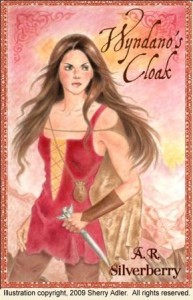 The Tree Tunnel Press catalogue, featuring Wyndano’s Cloak, will be included among the catalogues at the Taipei International Book Exhibition, 2011, in the USA Pavilion. The event takes place from February 9 – 14, 2011. The Taipei International Book Exhibition (TIBE) is one of Asia’s largest annual book fairs, and, for the past two years, has attracted over 500,000 visitors. The USA Pavilion will showcase titles and services by U.S. publishers, including paper books, e-books, digital databases, e-readers, and digital publishing services.
The Tree Tunnel Press catalogue, featuring Wyndano’s Cloak, will be included among the catalogues at the Taipei International Book Exhibition, 2011, in the USA Pavilion. The event takes place from February 9 – 14, 2011. The Taipei International Book Exhibition (TIBE) is one of Asia’s largest annual book fairs, and, for the past two years, has attracted over 500,000 visitors. The USA Pavilion will showcase titles and services by U.S. publishers, including paper books, e-books, digital databases, e-readers, and digital publishing services.